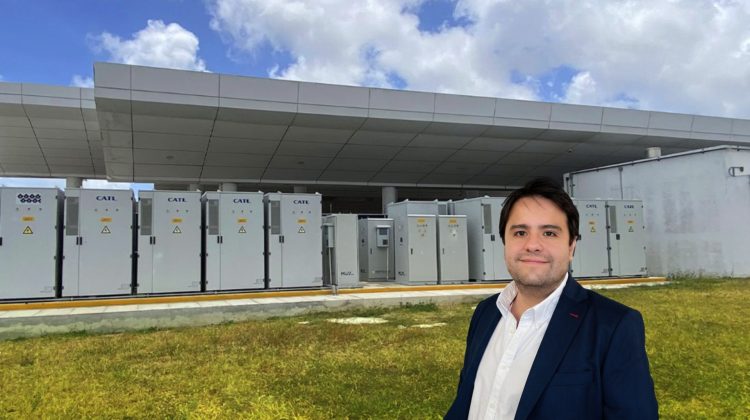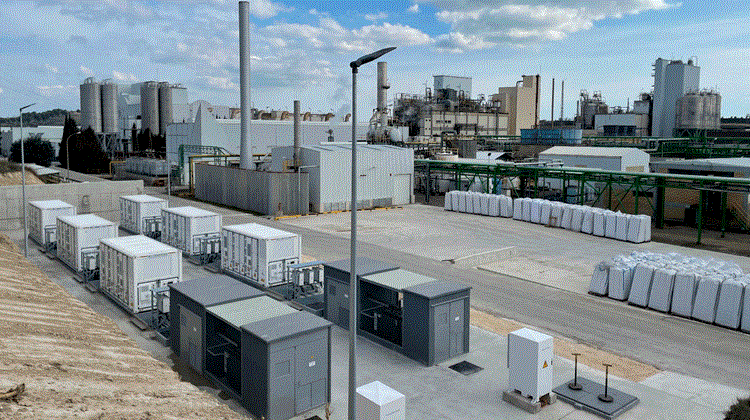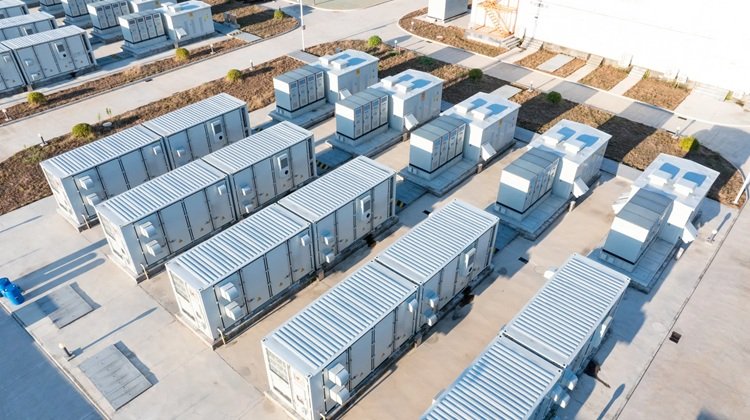Mexico is approaching an unprecedented phase in the adoption of battery energy storage systems (BESS). According to Enrique Garduño, CEO of Skysense, the country will experience “the storage boom in 2027, 2028 and 2029,” driven by regulatory updates, rapid renewable energy growth and the maturation of storage technologies.
Skysense currently operates nearly 200 MWh of storage capacity and expects to deploy an additional 300 MWh by 2026, with a strong footprint in industrial projects and microgrids.
“For 2026, we will deliver a utility-scale BESS project—there is no doubt,” Garduño told Energía Estratégica. However, he cautioned that the market is still in a preparatory phase and not yet fully ready for large-scale deployment.
Mexico’s regulatory framework has begun to provide clearer signals to investors after years of low activity. A decree published in March formally recognizes energy storage as an autonomous activity within the national electricity system—on equal footing with generation, transmission and commercialization.
For Garduño, one of the most encouraging aspects is the government’s openness to dialogue:
“It’s a very open government that is genuinely listening to the private sector,” he noted, emphasizing that Skysense actively participated in regulatory consultations, particularly on storage-related provisions.
Still, he warns that rapid investment must be supported by robust financial models and regulatory alignment to ensure sustainable, large-scale deployment.
Despite market uncertainty—given that today the main remunerated service for batteries is capacity—Skysense is ready to move forward: “We are in a position to invest today, under current conditions, and we are seriously pursuing it.”
Cost reductions have also been transformative:
“We are buying, installing and selling storage systems at less than half the price of three or four years ago,” he added.
At the same time, energy density improvements have reshaped the economics. Traditionally, a 40-foot container hosted 5 MWh; now a 20-foot container can house up to 9 MWh.
Skysense’s pivot toward energy storage began in 2021, moving beyond its earlier focus on distributed solar generation. Today, the company operates under an integrated model that spans development, engineering, construction, O&M, asset management and proprietary microgrid software.
The company also manages an investment vehicle—backed by international funds such as Riverstone—allowing it to own and operate the systems it deploys.
A cornerstone of this strategy is a USD 110 million investment plan for microgrid projects in Mexico and other Latin American markets.
“We expect to have this capital fully committed by mid-2026,” Garduño said. Part of that funding is already being executed, supported by commercial agreements and additional capital sources.
While Skysense’s core focus remains behind-the-meter solutions, the company is preparing to enter Mexico’s open market once conditions are in place: “We are not participating yet because the environment isn’t ready, but we know the market will open—and we are preparing.”
The company also announced a strategic partnership with BYD Energy Storage, a key pillar of its growth. The collaboration includes co-investment opportunities, technical support and long-term market alignment.
“We don’t see the manufacturer only as a supplier. We need a partner that answers the phone when needed and has a strategic view of the region,” Garduño emphasized. He noted that BYD’s backing strengthens Skysense’s positioning and signals confidence in Mexico’s storage market.
Regional Deployment: Colombia, Central America, the Caribbean and Beyond
Skysense’s regional expansion is accelerating. The company is developing projects in Colombia, Central America and the Caribbean, and assessing opportunities in markets including Argentina and the Dominican Republic.
In Colombia, Skysense is focused on non-interconnected zones, where challenging terrain restricts grid expansion and creates opportunities for hybrid systems combining solar, storage and microgrids. “The one thing all political forces in Colombia agree on is renewable energy development,” Garduño observed, noting a growing consensus that energy storage is indispensable to the country’s energy transition.
For Skysense, the path forward is clear: growth, technological sophistication and impactful deployment.




























